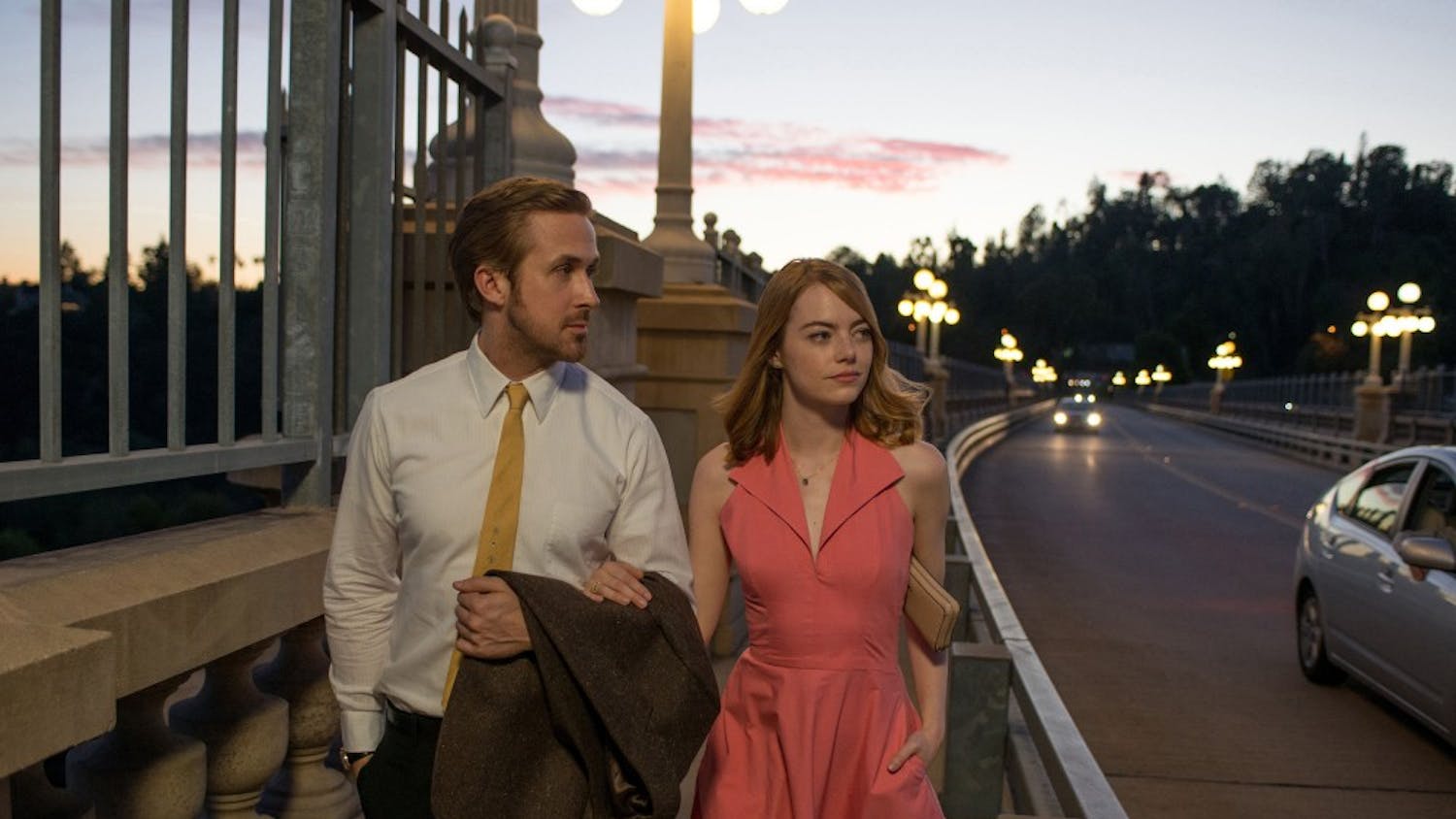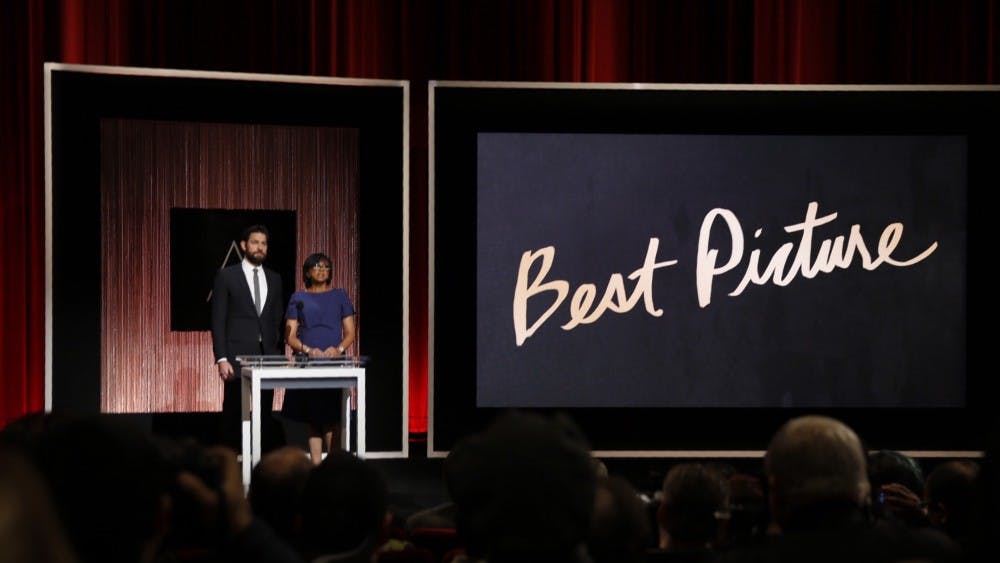It’s not unusual to see the same ideas in comedy. There’s only one world to be inspired by. As one episode of South Park joked, it’s impossible to concoct anything imaginative that The Simpsons hasn’t already covered. Particularly in an age of digital proliferation, there’s an intensified pressure to be the first at something. Comedians are trained to be faster, maybe at the expense of quality, because even if they make a terrible joke, they still get to be the first to make it.
It’s not unusual to see the same ideas in comedy. There’s only one world to be inspired by. As one episode of South Park joked, it’s impossible to concoct anything imaginative that The Simpsons hasn’t already covered. Particularly in an age of digital proliferation, there’s an intensified pressure to be the first at something. Comedians are trained to be faster, maybe at the expense of quality, because even if they make a terrible joke, they still get to be the first to make it.
Though the internet can launch hopeful comedians’ careers and help pioneer their creative endeavors, it also makes it just as easy for others to steal a joke and pawn it as their own. This is particularly evidenced in the Sammy Rhodes Twitter scandal. Rhodes’ steady stream of followers, which until recently numbered in the hundreds of thousands, has been dwindling since comedians like Rob Delaney and Patton Oswalt have publicly condemned the user’s plagiarism. Other big names have since joined in the backlash, urging their followers to report Rhodes for spam and block the alleged joke thief’s account.
Many accounts like @MensHumor have made bank on word-for-word reposts of jokes “belonging” to smaller names that at the end of the day, aren’t copyrighted. The controversy surrounding Rhodes, however, is different in that he uses the same sort of devious, fame-hungry sneakery, while trying to avoid accusations of pilfering. Call it sly or desperate, but Rhodes has altered a few words or the altogether arrangement of others’ jokes to build a comedic following. He now has thousands starring and retweeting “his” material, which, given Twitter’s history of providing comedians with writing and touring opportunities, is a dirty business.
A blog devoted to exposing Rhodes pairs screenshots of “his” jokes with strikingly similar tweets that had been posted a few months previously by largely unknown users. This has been hugely damaging to Rhodes’ image, given his denial of self-consciously stealing or even having seen the other jokes.
It’s not always necessarily cheating to build upon or rework an existing idea. In any field, if something works, there’s a chance the methods are good and can fertilize new genius, maybe even being improved upon in the process. When the endless parodies of the “Sh*t Girls Say” videos went viral, they were arguably sickening because of overexposure, not because they were unoriginal. Even labels of originality are debatable, given individual definitions of what constitutes originality.
Especially in the Twitterverse, there are always shoddy and favorable trends in joke-telling. Last summer, it was bath salts. This season, it’s what people are the “Michael Jordan of,” i.e. the Michael Jordan of eating cake. People usually aren’t chastised for filtering their comedy through these formulas, tweaking them in whatever minor or major ways they can fit into 140 characters. The bigger laughs, however, obviously come from bizarre or self-aware twists on what has come to be normalized, for example, one tweeter claiming to be the “Michael Jordan of Michael Jordan jokes.”
These trends provide a sort of blueprint for how to be funny, but they’re not unlike film parodies in that it’s not viewed as bad to manipulate them. The material is referential. Some comedians, such as musician “Weird Al” Yankovic, have made careers based almost entirely on such allusions. But in these cases, the creators are clearly paying homage to something widely known to the general public.
It’s a very different game than not giving credit where it’s due. Though Twitter’s trademark use of hashtags and trending topics ultimately drives at people sharing the same ideas, the plagiarism of accounts like Rhodes probably isn’t what they had in mind.
Being resourceful isn’t talent when it robs other people of their cleverness and ingenuity.. This is particularly evidenced in the Sammy Rhodes Twitter scandal. Rhodes’ steady stream of followers, which until recently numbered in the hundreds of thousands, has been dwindling since comedians like Rob Delaney and Patton Oswalt have publicly condemned the user’s plagiarism. Other big names have since joined in the backlash, urging their followers to report Rhodes for spam and block the alleged joke thief’s account.
Many accounts like @MensHumor have made bank on word-for-word reposts of jokes “belonging” to smaller names that at the end of the day, aren’t copyrighted. The controversy surrounding Rhodes, however, is different in that he uses the same sort of devious, fame-hungry sneakery, while trying to avoid accusations of pilfering. Call it sly or desperate, but Rhodes has altered a few words or the altogether arrangement of others’ jokes to build a comedic following. He now has thousands starring and retweeting “his” material, which, given Twitter’s history of providing comedians with writing and touring opportunities, is a dirty business.
A blog devoted to exposing Rhodes pairs screenshots of “his” jokes with strikingly similar tweets that had been posted a few months previously by largely unknown users. This has been hugely damaging to Rhodes’ image, given his denial of self-consciously stealing or even having seen the other jokes.
It’s not always necessarily cheating to build upon or rework an existing idea. In any field, if something works, there’s a chance the methods are good and can fertilize new genius, maybe even being improved upon in the process. When the endless parodies of the “Sh*t Girls Say” videos went viral, they were arguably sickening because of overexposure, not because they were unoriginal. Even labels of originality are debatable, given individual definitions of what constitutes originality.
Especially in the Twitterverse, there are always shoddy and favorable trends in joke-telling. Last summer, it was bath salts. This season, it’s what people are the “Michael Jordan of,” i.e. the Michael Jordan of eating cake. People usually aren’t chastised for filtering their comedy through these formulas, tweaking them in whatever minor or major ways they can fit into 140 characters. The bigger laughs, however, obviously come from bizarre or self-aware twists on what has come to be normalized, for example, one tweeter claiming to be the “Michael Jordan of Michael Jordan jokes.”
These trends provide a sort of blueprint for how to be funny, but they’re not unlike film parodies in that it’s not viewed as bad to manipulate them. The material is referential. Some comedians, such as musician “Weird Al” Yankovic, have made careers based almost entirely on such allusions. But in these cases, the creators are clearly paying homage to something widely known to the general public.
It’s a very different game than not giving credit where it’s due. Though Twitter’s trademark use of hashtags and trending topics ultimately drives at people sharing the same ideas, the plagiarism of accounts like Rhodes probably isn’t what they had in mind.
Being resourceful isn’t talent when it robs other people of their cleverness and ingenuity. As one episode of South Park joked, it’s impossible to concoct anything imaginative that The Simpsons hasn’t already covered. Particularly in an age of digital proliferation, there’s an intensified pressure to be the first at something. Comedians are trained to be faster, maybe at the expense of quality, because even if they make a terrible joke, they still get to be the first to make it.
Though the internet can launch hopeful comedians’ careers and help pioneer their creative endeavors, it also makes it just as easy for others to steal a joke and pawn it as their own. This is particularly evidenced in the Sammy Rhodes Twitter scandal. Rhodes’ steady stream of followers, which until recently numbered in the hundreds of thousands, has been dwindling since comedians like Rob Delaney and Patton Oswalt have publicly condemned the user’s plagiarism. Other big names have since joined in the backlash, urging their followers to report Rhodes for spam and block the alleged joke thief’s account.
Many accounts like @MensHumor have made bank on word-for-word reposts of jokes “belonging” to smaller names that at the end of the day, aren’t copyrighted. The controversy surrounding Rhodes, however, is different in that he uses the same sort of devious, fame-hungry sneakery, while trying to avoid accusations of pilfering. Call it sly or desperate, but Rhodes has altered a few words or the altogether arrangement of others’ jokes to build a comedic following. He now has thousands retweeting “his” material, which, given Twitter’s history of providing comedians with writing and touring opportunities, is a dirty business.
A blog devoted to exposing Rhodes pairs screenshots of “his” jokes with strikingly similar tweets that had been posted a few months previously by largely unknown users. This has been hugely damaging to Rhodes’ image, given his denial of self-consciously stealing or even having seen the other jokes.
It’s not always necessarily cheating to build upon or rework an existing idea. In any field, if something works, there’s a chance the methods are good and can fertilize new genius, maybe even being improved upon in the process. When the endless parodies of the “Sh*t Girls Say” videos went viral, they were arguably sickening because of overexposure, not because they were unoriginal. Even labels of originality are debatable, given individual definitions of what constitutes originality.
Especially in the Twitterverse, there are always shoddy and favorable trends in joke-telling. Last summer, it was bath salts. This season, it’s what people are the “Michael Jordan of,” i.e. the Michael Jordan of eating cake. People usually aren’t chastised for filtering their comedy through these formulas, tweaking them in whatever minor or major ways they can fit into 140 characters. The bigger laughs, however, obviously come from bizarre or self-aware twists on what has come to be normalized, for example, one tweeter claiming to be the “Michael Jordan of Michael Jordan jokes.”
These trends provide a sort of blueprint for how to be funny, but they’re not unlike film parodies in that it’s not viewed as bad to manipulate them. The material is referential. Some comedians, such as musician “Weird Al” Yankovic, have made careers based almost entirely on such allusions. But in these cases, the creators are clearly paying homage to something widely known to the general public.
It’s a very different game than not giving credit where it’s due. Though Twitter’s trademark use of hashtags and trending topics ultimately drives at people sharing the same ideas, the plagiarism of accounts like Rhodes probably isn’t what they had in mind.
Being resourceful isn’t talent when it robs other people of their cleverness and ingenuity.
Inspiration versus imitation

Get stories like this in your inbox
Subscribe




